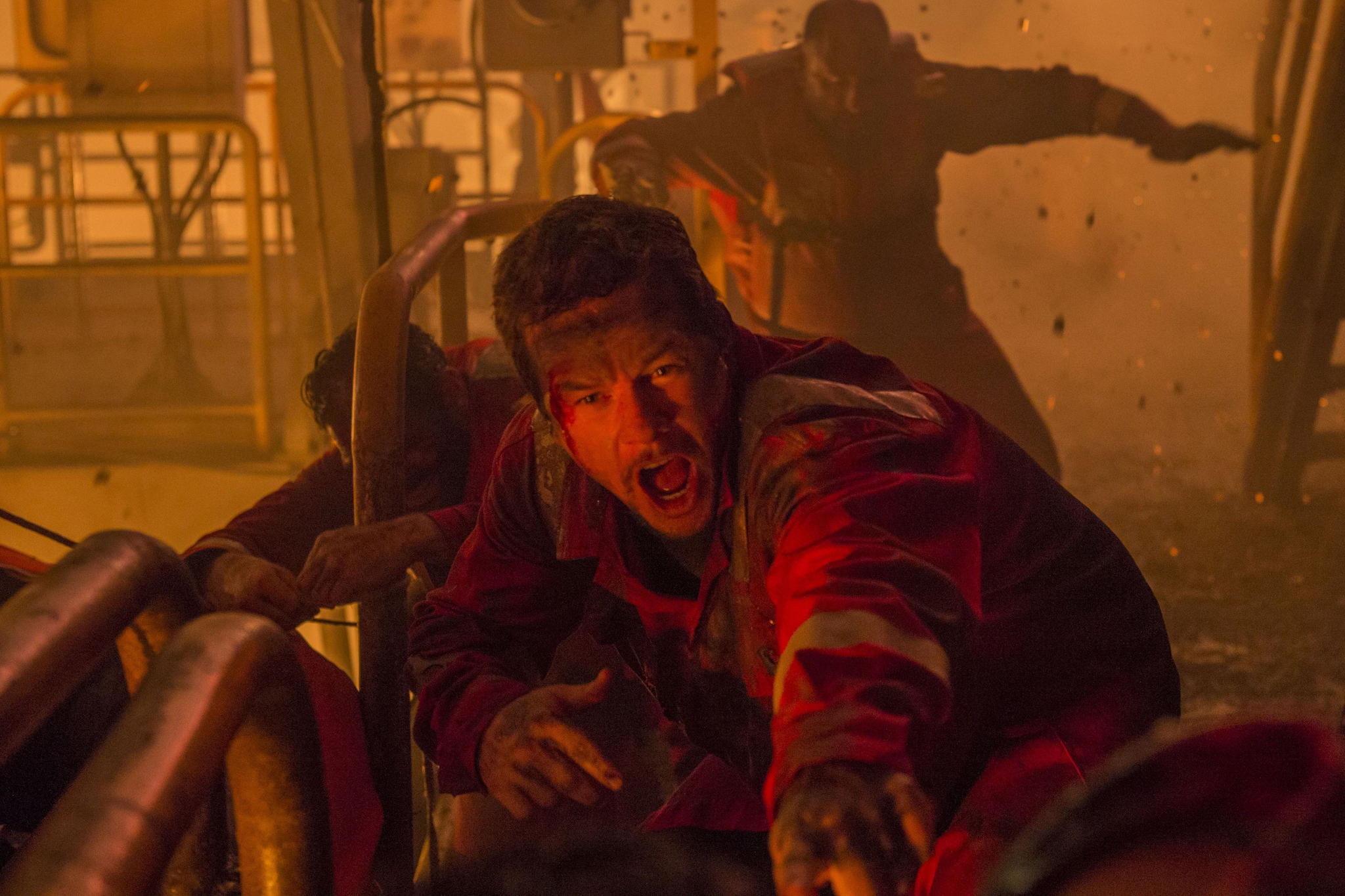The miracle of Sensurround was uncorked in 1974 as part of the gimmicky release of Earthquake. Universal Pictures wanted to add something extra to the glut of disaster pictures in the marketplace (this was the epoch of The Poseidon Adventure and The Towering Inferno), so Sensurround was born. Theaters added huge speakers, booming bass notes were embedded in the soundtrack, and the ads warned that the effect would be akin to an actual earthquake: “The management assumes no responsibility for the physical or emotional reactions of the individual viewer.” That sold a lot of tickets, and the walls really did shake. But Sensurround was used on only a handful of films before more sophisticated audio systems came into use.
Today, technical advancements make it possible for theaters to rumble and quake with deafening authority—many movie experiences are the equivalent of getting stuck in traffic in front of a car with its thumping subwoofers tuned to the “bleed” setting. Such a film is Deepwater Horizon, a throwback to the ’70s-era disaster flick. The cheesy come-on of Sensurround is nowhere to be seen here; the filmmakers have said the movie is meant as a sober tribute to the 11 workers killed in the oil-rig disaster in 2010. But Deepwater Horizon follows the Earthquake formula, and its sound effects spare nothing in pursuit of tooth-rattling.
A disaster movie resembles a striptease, building from innocent hints at the beginning to a slow, exquisitely delayed presentation of the money shots. Deepwater Horizon focuses on a handful of real-life survivors of the Gulf catastrophe, so we begin with Mike Williams, a good-hearted everyman played in customary good-hearted-everyman fashion by Mark Wahlberg. As he leaves his happy wife (Kate Hudson) and happy child for work on the oil platform, Mike’s daughter provides a lesson in how the pressure in an oil rig works, as part of her class project. She uses a Coke can. An excess of escaping carbonation foreshadows our larger catastrophe.
The movie has a lot of that: explaining how things work. When we watch a movie about an ocean liner turning upside down, we’ve got the gist of what the main problems are—you want to avoid the grand piano when it tumbles through the air. With an oil rig, a certain amount of explication needs to happen, which the film dutifully attempts. We get some of that as Mike flies by helicopter to the rig, along with his boss Jimmy Harrell (Kurt Russell) and some BP executives. The BP guys are there to hand out safety awards, but also to push along the installation of the oil well, which is running behind schedule. Once aboard the Deepwater Horizon, we wait for the inevitable to happen, and a BP honcho (John Malkovich, reveling in his character’s wrongness) talks the corporate talk and rushes the crew into some fatal decision-making.
The film is pretty bald about making BP the fall guy for the disaster, although this seems like a safe choice under the circumstances. By the time we reach the halfway point, this is a survival movie, with Mark Wahlberg dodging special effects as the crew performs nobly in the middle of a hellscape. Director Peter Berg (Battleship, Lone Survivor) is a veteran of manly-man adventure films, but he tries to keep it real here, or realer than usual. Given the credibility of the effects, you get a good idea of what it might have been like to be on the rig and how much courage it took to get off it. Wahlberg and Russell occupy most of the focus, although there are character bits for the supporting cast. These are fairly skillful, quickly tugging at audience engagement. For all its spectacle, Deepwater Horizon runs a relatively fleet 107 minutes.
In fact, most of those big ’70s disaster pictures are far clumsier than this one. But the thrills of the explosions should raise questions. Berg doubtless wants to suggest the terror of the place, yet the excitement generated by each crash is perhaps just a tad unholy; you end up more impressed by what Hollywood technicians can do than by the survivors’ heroism. By contrast, the cool, clean elucidation of a near-tragedy in Sully puts the emphasis on professionalism and expertise rather than special effects. Deepwater Horizon also leaves out the explosion’s environmental consequences, relegating them to a final footnote. This movie is about heroes in the moment, not the messy aftermath. Deepwater Horizon, Rated PG-13. Opens Fri., Sept. 30 at multiple theaters.
film@seattleweekly.com






